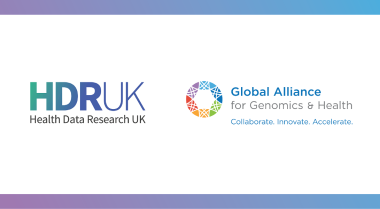It’s raining data, hallelujah?
30 July 2019 | Author: David Seymour, Director of Infrastructure and Services
After the sunshine and high temperatures of last week, one of the few benefits of a wet weekend in the East Midlands was the chance to watch the new Netflix documentary The Great Hack.
This film details one of the most unethical uses of ‘big data’ in recent years – the Cambridge Analytica / Facebook scandal – and how the ‘persuadable voters’ in both the 2016 US Presidential election and the UK’s EU referendum were first identified and then targeted with propaganda.
As the new-in-post Partnership Director at Health Data Research UK, this portrayal of such a gross misuse of personal data made for sobering viewing. Our Institute’s stated aim is to “unite the UK’s health data to make discoveries that improve people’s lives”, and we can only achieve this by increasing access to data for researchers and innovators. A large part of my role is to work with partners in the UK Health Data Research Alliance of data custodians to make our data assets increasingly ‘FAIR’ (Findable, Accessible, Interoperable and Reusable).
Any ‘data custodian’ watching the Great Hack would see their worst privacy fears played out. After agreeing to provide an external researcher with access to a limited dataset for academic purposes, huge volumes of identifiable personal information of 87 million individuals, finds its way into the control of a private company who uses it target individuals with ‘marketing messages’ with no clear public interest benefit. To make matters worse, the individuals concerned had no knowledge that their data was being used (no explicit consent) and even after the issues had come to light the company carries on using the data despite telling the original data custodian (Facebook) it has deleted it.
If there is a positive to be taken from the whole episode, it is the potential power of data science to change the world. The responsibility that everyone working in this field carries with them is to ensure that power is used ethically for patient and public benefit, and that privacy is, as far as possible, protected.
The Great Hack helps viewers to visualise how elements of a person’s digital footprint can be harvested, linked together and then used by machine learning algorithms against us. Arguably, the greater problem facing the UK’s life sciences sector, is the lack of available data and the challenges of linking even the most basic health records together. Even sharing data for routine healthcare is anything but straight forward and after the care.data programme failed to secure the trust of doctors or the public, it must seem to many researchers and innovators as though parts of the system are in lock-down. As a result, potentially life-saving or life enhancing research is stalled and we are collectively failing to realise the ‘value of data’ to society.
As any user of the NHS will be aware, its technological platform does not come anywhere close to Facebook’s in terms of functionality and connectedness. Whilst Cambridge Analytica could boast of having over 500 data points about each individual, the NHS finds it a challenge to join up the dots about an individual due to different systems, standards and technology. The new NHSX is focused on this challenge in England, whilst the Alliance’s work on Data Standards and Quality takes a UK-wide research and innovation perspective.
***
Documentaries about ‘big data’ scandals and new stories about Capital One data breaches are a stark reminder of the context within which we are operating and the importance of trust. The UK Health Data Research Alliance organisations are working collectively to promote the responsible sharing of health data for research and innovation and I’m delighted that later this week we will be announcing a diverse group of organisations that are joining our founding nine members. The list will include large NHS providers, custodians of high value registries and population cohorts. Watch this space for further information and if you are interested in finding out more about the Alliance please email us at enquiries@hdruk.ac.uk.
If you think you have a use case that you’d like to test and develop through the Digital Innovation Hubs programme then you may want to take a look at our Sandbox process.



